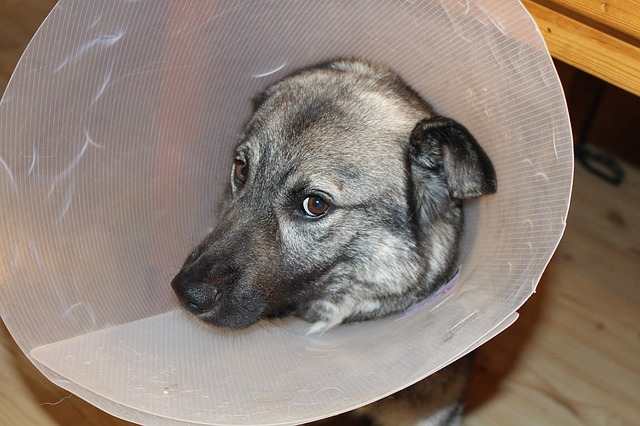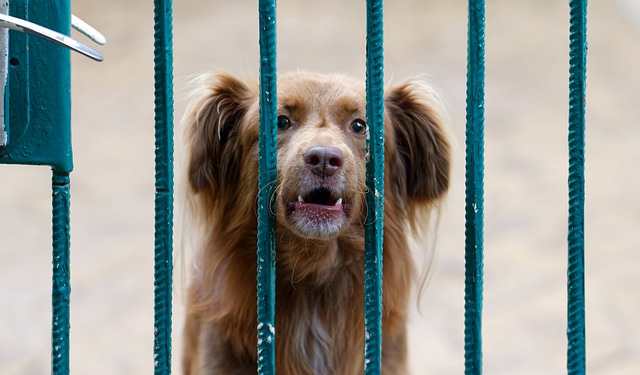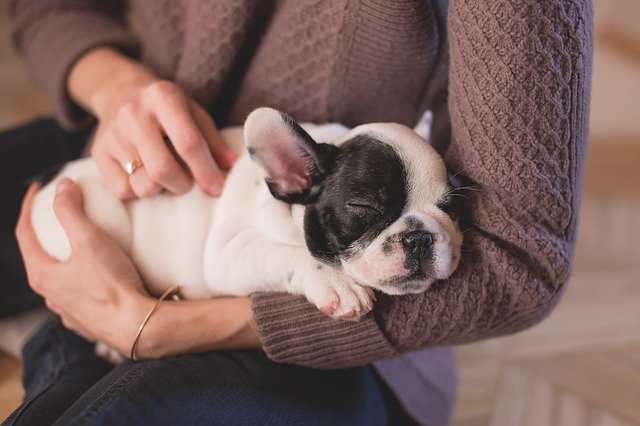Dogs are denning animals by nature, that’s why experts recommend crate training to provide a safe and personal space for the puppy.
The crate training process is conditioning your puppy to consider the crate as his den and feel safe in it, it’s where he sleeps, relaxes when you’re not around and when feeling down.
Puppies will initially show some resistance to the crate while still in training, but it does not last long using treats, toys, and praise.
A puppy screaming in the crate for hours is trying to communicate with his owner, he is either physically ill, there is something wrong with the crate, doesn’t feel safe in it, or simply seeking attention.
There are multiple reasons why a puppy would be screaming in his crate for a long period, in this article we’ll go over the potential reasons and provide solutions for each situation.
We can categorize these reasons into two main categories, it’s either physical (dog’s health, crate, disturbance…) or behavioral, so let’s start with the most obvious reasons and go down the list.
Puppy screaming in the crate for hours, it’s physical
Before you seek expert behavior training or try to work with your dog on his bond to the crate, it’s easier to start with the obvious.
Sometimes, things as little as a bad smell in the crate could be the reason why your puppy is screaming in there.
So what are the most common reasons for a puppy to be screaming in his crate?
Something’s wrong with the crate
The crate size
One of the most common issues is when the puppy rapidly outgrows his crate and he suddenly can’t get comfortable in it.
When you first buy the crate you’re often told that it should be a perfect size not too small and not too big either ( it can make potty training hard), so it has to be a few inches larger than the puppy.
We tend to forget how fast the puppies grow especially in the first few months, and the crate could become too small and uncomfortable.
The best solution is to use a wire crate with a divider panel, you will be able to adjust the size of the crate as your dog grows and save money on changing crates every couple of months.
We use and recommend the Midwest Ultima Pro Wire Crate ( check on Amazon), it comes with a divider panel, it’s foldable, and has two doors, which makes the crate training much easier.
When choosing a wire crate with a divider, make sure to choose one that is the size of a full-grown dog, you can find most dog breeds’ standard size and information in the AKC breed guide.
The crate is broken
After you make sure the crate size is not the problem, the first thing you do is to inspect the crate for sharp or broken parts.
Often, puppies chew on the crate and there could be some broken sharp edges that could make it uncomfortable.
If you notice any destructive behavior from your puppy towards the crate you should deal with it before it damages the crate.
The solution for this problem is simply changing the crate, a wire crate is less likely to be damaged by chewing.
Something’s changed about the crate
Changing the crate itself, its location, or even the bed can make the dog reject it, and he’ll let you know by screaming non-stop once in it.
If you’ve changed anything about the crate you can expect to have resistance and should be aware of that before your dog goes in it.
The solution is to put something with your smell in there an old shirt or something to comfort your dog, also if you’ve changed the location of the crate make sure there is nothing wrong with the new placement.
A puppy that is properly crate trained is very attached to his crate, so you have to be patient if you’ve made any changes use toys, treats, and interactive toys.
Other dogs or pets have been in the crate
The purpose of the crate is for it to be a personal safe and intimate den for the dog, no other dogs or pets should be allowed in it.
In general, dogs don’t like to share their crate or bed, especially if not used to other pets around the house, that could explain why your dog is screaming in his crate.
Dogs have a very sensitive sense of smell and will easily detect if other dogs or pets have been in the crate.
If you have multiple dogs in the house each one should have his own crate and should be trained not to go into each other’s crates, the same goes for other pets.
If another pet did go into your dog’s crate and he’s not happy about it and rejecting his crate, washing it all and having something with his own smell on it in the crate should be enough to set things right.
The puppy is sick

One of the most common causes dogs are whining in the crate is sickness, and unfortunately, it’s overlooked by many dog parents.
Once you’re done inspecting the crate and its surroundings if nothing’s changed or wrong about it, you need to shift your attention to your dog.
Make sure to check your dog for any signs of sickness, pains, and injuries that could make your dog extremely uncomfortable in his crate.
If you have any doubts that your dog is sick, a visit to the vet is the only solution, overlooking small health issues could turn them into serious problems.
The puppy needs a potty break
Young puppies especially small breeds tend to have small bladders, so it would be difficult for them to hold it for multiple hours.
When first crate training a young puppy you can be sure that you’ll need to wake up at night at least once or twice for a potty trip.
Dogs are fairly clean animals, they do not like to eliminate where they sleep, so they’ll hold it as long as they can but will let you know, and their only mean of communication is screaming in their crate.
You need to be aware of how long your dog can hold it and a good tip is to take your dog for a potty trip just before he goes into the crate, this way you can get a couple of hours without barking.
Puppy screaming in the crate for hours, it’s behavioral
After checking physical reasons and there is nothing wrong with your dog or his crate, it’s time to go down the list of behavioral or training mistakes that could be the reason why your dog is screaming for hours in his crate.
Age for senior dogs
If your dog is old it could explain a sudden behavior change, dogs can also get grumpy or sometimes their bladders get weaker and they can no longer handle being in the crate for a long period.
If your senior dog is no longer comfortable in its crate, a puppy exercise pen could be a great alternative, there is the Midwest wire playpen (check on Amazon) it can be attached to the wire crate we recommended earlier, and make a great crate playpen combo.
Crating for too long

Most puppies can’t handle being in the crate for more than an hour twice a day in the first few weeks of their life.
As the puppy is getting older he can be crated for longer periods, but not too long, two to three hours is the most a dog should spend in the crate at a time.
And when you’re back home there should be a lot of activities and quality time to compensate for the long period in the crate.
Anything more than three hours even for adult dogs is too long, and the dog will feel bored and will not be happy in there.
When you are home the dog should not spend more than an hour in the crate or else he’ll be frustrated.
If you do have to work and need to leave your dog alone during the day there are other alternatives and solutions you can try, the playpen or a confined area are great alternatives, for more suggestions read this article about crate training while working a full-time job.
Your puppy is not exercising enough
Puppies should go into the crate at night to sleep and during the day to relax after they’ve had enough exercise.
No dog will stay in the crate if feeling energetic, dogs do need to relax a lot during the day and no dog even the most energetic can stay that way the whole day.
However, they do need enough playtime and plenty of exercises and playtime before they go into the crate.
Make sure your dog goes for a walk or has an interactive play session using toys before it’s time to go into the crate.
How much activity or exercise will of course depend on the breed of the puppy and how energetic your dog is.
Be aware that the younger the puppy the less activity he needs, some young puppies will do just fine with a 10 minutes walk, so don’t overdo it.
The puppy is testing you
Puppies can get bored with something and they’ll test the water for something new, you can often notice this with food when they’ll just reject something that they’ve been eating for a long time.
If this ever works out for your dog then he’ll try it again with everything else, so be careful not to fall for it.
Dogs are smart, if screaming works one time and you’re too tired to resist then they’ll know that screaming will get them what they want.
puppy not crate trained properly
Crate training is generally a slow process that takes time to condition your dog to love and feel safe in his crate.
Sometimes crate training is not done correctly and the puppy feels imprisoned in his crate, which could explain why he’s screaming in there.
This issue is very common at the beginning of the crate training especially at night, but not dealing with it can make it get worst.
Thes easiest solution is to crate train the puppy step by step introducing him to his crate and using treats and toys to lure him in and verbal praise.
Make sure the puppy has his meals served in there and don’t crate your dog for too long from the start, make it gradual until your puppy is ready.
You’ve rushed your dog into the crate
This is actually a very common mistake when crate training a puppy, where many dog owners will just get a crate and lock the dog inside and take off.
This is actually the worst thing you can do when trying to crate train a puppy, you make a very bad association between the crate and being left alone.
Your dog should never go into the crate until properly introduce, in fact never introduce your dog to something when it’s time to do it.
Give your dog some time to explore the crate and get used to it use treats and verbal praise be there when he’s inside to break the association of the crate and being left alone and step by step your dog will get used to his crate.
Using the crate for punishment
If you’ve been using the crate for punishment and time out, then you can expect that your puppy will be screaming in there when he’s done nothing wrong.
Dogs evaluate places based on experiences, if every time there is something wrong you send him into the crate, then every time he’s in there he feels frustrated and confused.
This is a very common mistake also and one that needs to be avoided at all costs.
In fact, punishment as a whole is useless, unless you catch your dog in the act there is no need to punish him you only make him confused.
Dogs are smart but not smarter than a toddler, they can not understand why they’re being punished unless it’s in the exact moment when they’re doing something wrong.
if you’re going to do it anyway at least don’t use the crate for that.
Puppy craving for attention

Some puppies just don’t like to be left alone and will not stop screaming for hours unless you give them the attention they seek.
This often happens when the dog is extremely attached to one person in particular, and it’s hard to make them stay in the crate.
The best way to deal with this is to not be overly touchy with your dog from the start and have some rules, but if you couldn’t resist and what’s done is done, you’ll need some training.
The solution is to socialize with other people and pets, your puppy needs to find new interests other than just focusing on you.
This problem is often observed in some particular breeds that are originally designed for a job, when not given one they tend to focus on their owner.
Some breeds tend to bond with one person the most, it’s usually the breeds that are independent thinkers and won’t do things unless they’re convinced it’s fun, they say westies are the worst in this area but it’s all about good training and early socializing.
Puppy screaming in the crate for hours, what should I do?
We’ve been through the most common reasons why a puppy would be screaming in his crate and provided solutions for each situation, but what should you do on the spot while it’s happening?
The best way to deal with it is not to let the puppy out when he’s whining in his crate, if you do like we’ve mentioned he could just be testing you.
You need to break his screaming cycle before letting him out, this way he doesn’t associate being out with barking.
Make as simple as talking to your dog or perhaps verbal praise, sometimes just tapping on the crate is enough, when your dog is calm for a minute or two, you can go ahead and let him out of the crate.
Now that the dog is out of the crate you need to go over the potential reasons we just listed starting by inspecting the crate and the dog.
If there is nothing wrong and it’s all behavioral, get some treats and lure him back inside and start crate training again step by step and take things slow.
Your puppy will eventually feel comfortable enough in his crate and the screaming will cease.






